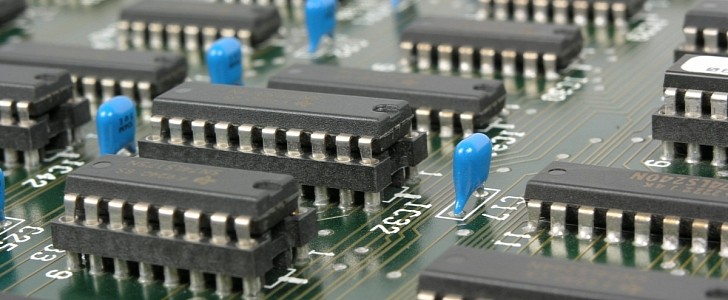The global chip shortage is far from over, and analysts have several outlooks regarding its evolution. While some estimate that the chip shortage will outlast the International health crisis, other analysts warn that it could lead to market saturation in the near future.
In other words, while automakers and electronics producers have suffered from the shortage of microchips starting last year, a crisis that continues in various forms for all parties involved, their supply specialists ordered excessive microchips for future production. Today, that is not an issue, as there is still a shortage of these vital components.
So, what is the problem, then? Well, it appears that chip manufacturers have responded to increasing demand with investments in new capacity. Once those investments will be completed and supply will slowly, but surely, meet demand, analysts warn there is a risk of chip glut, as Fortune describes it.
In other words, chip manufacturers might have invested too heavily in increasing their capacity, which could lead to an overcapacity over time. Especially since some automakers are considering switching production strategies, which would reduce reliance on massive orders of chips and other outsourced components. The latter would bring a shift in wait times for deliveries, as well as a potential need to rethink various elements on the supply chain.
In May, South Korea announced plans to invest $450 billion to boost its chip production. The investment is channeled through several channels, including tax breaks, for companies that operate in the country. South Korea's Samsung with Taiwan's TSMC control over seventy percent of the semiconductor manufacturing market, with the latter being the biggest player in the industry at the moment.
The current administration of the U.S. is also considering ways to bring manufacturing back on American soil to reduce the reliance on various chipmakers and ensure a better supply for domestic industry. However, China is also investing heavily in new factories that will allow it to up its chip production, and all the above could lead to market saturation.
In 2019, China was the place where 35 percent of electronic devices sold in the world were assembled, followed by the U.S. at 19 percent, and Taiwan with 15 percent. South Korea came in fourth place with 12 percent, while Europe took fifth place with ten percent and Japan was sixth with nine percent. When the headquarters of the electronic device makers were concerned, the U.S. was leading the pack with 33 percent, followed by China at 26 percent.
Unfortunately, saturating the market with an excessive production capacity will not lead to making chips cheaper, as all the companies that have invested in increasing their capacity will want to get a return on their investment. Their stockholders will also want to benefit, and end-users could be the ones stuck with the bill.
So, instead of cheaper electronics or more powerful smartphones and gadgets, we could just get more expensive gadgets instead, as the chip makers could raise the price of their products to make due on their investment.
So, what is the problem, then? Well, it appears that chip manufacturers have responded to increasing demand with investments in new capacity. Once those investments will be completed and supply will slowly, but surely, meet demand, analysts warn there is a risk of chip glut, as Fortune describes it.
In other words, chip manufacturers might have invested too heavily in increasing their capacity, which could lead to an overcapacity over time. Especially since some automakers are considering switching production strategies, which would reduce reliance on massive orders of chips and other outsourced components. The latter would bring a shift in wait times for deliveries, as well as a potential need to rethink various elements on the supply chain.
In May, South Korea announced plans to invest $450 billion to boost its chip production. The investment is channeled through several channels, including tax breaks, for companies that operate in the country. South Korea's Samsung with Taiwan's TSMC control over seventy percent of the semiconductor manufacturing market, with the latter being the biggest player in the industry at the moment.
The current administration of the U.S. is also considering ways to bring manufacturing back on American soil to reduce the reliance on various chipmakers and ensure a better supply for domestic industry. However, China is also investing heavily in new factories that will allow it to up its chip production, and all the above could lead to market saturation.
In 2019, China was the place where 35 percent of electronic devices sold in the world were assembled, followed by the U.S. at 19 percent, and Taiwan with 15 percent. South Korea came in fourth place with 12 percent, while Europe took fifth place with ten percent and Japan was sixth with nine percent. When the headquarters of the electronic device makers were concerned, the U.S. was leading the pack with 33 percent, followed by China at 26 percent.
Unfortunately, saturating the market with an excessive production capacity will not lead to making chips cheaper, as all the companies that have invested in increasing their capacity will want to get a return on their investment. Their stockholders will also want to benefit, and end-users could be the ones stuck with the bill.
So, instead of cheaper electronics or more powerful smartphones and gadgets, we could just get more expensive gadgets instead, as the chip makers could raise the price of their products to make due on their investment.







